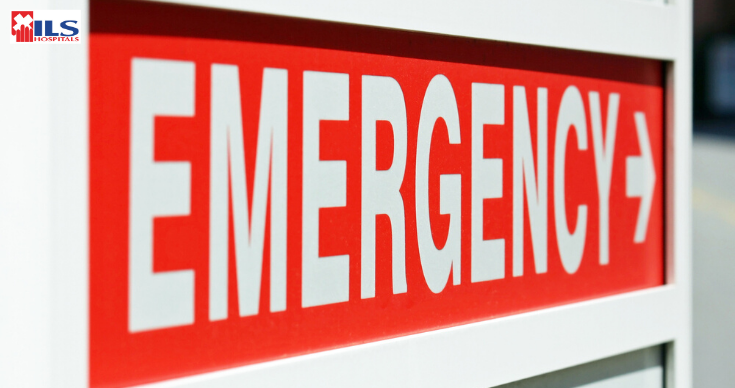All About Blood Groups and Immune System
Blood groups affect our immunity directly. Different blood groups are responsible for antibody generation in our bodies in response to viruses, bacteria, and other intruders.
When antigens present in the blood come in contact with an unknown substance, they signal the immune system to take the needful measures against such components. Blood is broadly classified into 8 types, and you must know your blood group before undergoing any medical procedure.
Understand how your blood type is related to the health and immunity system and how likely your body will acquire various diseases based on your specific blood group.

Cancer
It is observed that blood group A is more likely to develop stomach cancer among all blood groups. The ABO gene also plays a significant role in heightening cancers of the lungs, breast, liver, etc. If you have an A blood group, it’s wise to get yourself thoroughly checked for these cancers.
Stress
If you have a blood group A, stress might be a common and frequent issue for you. As individuals with such blood type have more release of cortisol and stress hormones in their body, they might find it very tough to deal with anxiety.
Heart Diseases
A specific type of gene called an ABO gene can put you at a greater heart disease risk. This threat multiplies further if you live in an area where pollution levels are high. If you belong to the blood group- A, B, or AB, chances of coronary heart diseases are elevated for you. Get yourself thoroughly checked before any mishap.
Pregnancy Complications
Many people don’t know about the rhesus factor (Rh) and its fatal consequences in unfavourable contact with substances. If a pregnant woman’s rhesus factor does not match that of the child’s, the mother’s immune system might recognise the child as an allergy and start making antibodies against it. Further, this can lead to dangerous outcomes for both the mother and the baby.
If you are pregnant and are looking forward to a healthy and easy delivery of the baby, I would advise you to visit a gynaecologist hospital as soon as possible. If you live in a rural area, try contacting some well-known gynaecology hospital in Kolkata, Mumbai, Delhi, etc. These hospitals will have the best medical facilities and services and will be able to cater to all your needs.
Brain Functioning
The ABO gene can also lead to low brain functioning and memory loss and cognition problems. As the O blood group doesn’t have this gene, people with this particular blood type are free from such illnesses. Study shows that individuals having blood group, A, B, and AB, are more likely to develop memory and brain-related problems than those having O blood group.

Malaria
People with blood group O are less prone to get infected with malaria, as the parasite causing this illness doesn’t get easily attached to blood cells of O type.
You need to know your blood type before entering into a medical procedure. Your immune system might not receive certain kinds of treatments positively, and the incompatibility could be fatal. As this problem is common in blood transfusions and pregnancy, you would want to get thoroughly checked beforehand. Dredge out the best gynaecology clinic, gynaecologist hospital near you, or visit sites like www.ilshospitals.com to contact the most reputed gynaecology hospital in Kolkata and nearby cities.
Stress Management in the Times of Covid19
Even though the COVID-19 crisis is a physical health crisis at first but might grow into a major mental health crisis. Good mental health is key to a smooth lifestyle and we, as individuals, should stay on top of our conscience to keep sane.
The pandemic has induced fear and anxiety amongst people due to the exclusivity of the disease. The common emotion that has enveloped people has been stress, fear, and a unified overwhelming feeling. Social distancing has people feeling isolated and induced anxiety about bigger things in life. What we, as a society, can do is stick to our hygiene-first actions to reduce the spread of COVID-19. But while you are at it, ss per the World Health Organisation here are a few ways of coping with stress in a healthy way:
Pause. Breathe. Reflect.
Take some slow breaths: in through your nose, then slowly breathe out. Slow breathing is one of the best ways to lower stress because it signals to your brain to relax your body. Notice how you are feeling and what you are thinking, without judgment. Instead of responding or reacting to those thoughts or feelings, note them, and then let them go.

Connect with others
Talking to people you trust can help. Keep in regular contact with people close to you. Tell them how you are feeling and share any concerns.
Keep to a healthy routine Do:
- Get up and go to bed at similar times every day.
- Keep up with personal hygiene.
- Eat healthy meals at regular times.
- Exercise regularly. Just doing 3-4 minutes of light intensity physical movement, such as walking or stretching, will help.
- Allocate time for working and time for resting.
- Make time for doing the things you enjoy.
- Take regular breaks from on-screen activities.
Don’t:
Don’t use alcohol and drugs as a way of dealing with fear, anxiety, boredom and social isolation..

Be kind to yourself and others
Don’t expect too much of yourself on difficult days. Accept that some days you may be more productive than others. Try to reduce how much you watch, read or listen to news that makes you feel anxious or distressed. Seek the latest information from trusted sources at specific times of the day. Helping others can be good for you too. If you are able to, offer support to people in your community who may need it.
Reach out for help if you need it
Don’t hesitate to seek professional help if you think you need it. A good place to start is your local health worker. Help-lines can also be a source of support.
Psychiatry is the medical domain that is dedicated to the diagnosis, prevention, and treatment of mental disorders of people who are otherwise disease-free. It evaluated patients who suffer from persistent and severe mood swings, unpredictable behaviour and actions, PTSD, panic attack, frightening hallucinations, self-harming, and hearing “voices.” it also includes patients suffering from long-term sadness, hopelessness, or anxiousness, up to a point when it begins to disrupt the everyday life. At ILS Hospitals, our expert psychiatrists are here to assist anyone in the times of a crisis.
To know more, visit www.ilshospitals.com or call ILS Care +91 90514 60000.
The Importance of a Healthy Lifestyle During the Pandemic
If the pandemic of 2020 has taught us anything particularly, it is the importance of having a stable, healthy lifestyle. While the definition of a healthy lifestyle is subject to many facts and interpretations, it should be taken into account that it is both mental and physical. Adopting healthy choices for both your mind and body is crucial and can result in a thriving life at large. The choice is ours to make – eating an apple over the tempting bowl of fried chips to taking a digital detox and picking up a book. Here is a list of things that you should definitely incorporate into your lifestyle for long-term benefits.

1. Hydration is the key
A human body needs enough water to keep the fluid balance in check. Not only that, hydration plays an important role in nutrition as well. We need water to digest the food, get rid of waste and for perspiration. All humans should consume a minimum of 1.5 to 2 litres every day. However, drinks with high sugar level should be avoided.
2. Eat your bowl of fruits and vegetables
As per the USDA’s Dietary Guidelines, it is recommended that adults should eat anywhere from 5 to 13 servings of fruits and vegetables per day as per their age and gender. Five servings of fruits & vegetables are one of the golden rules of nutritional science. This is an excellent way of consuming essential vitamins that contribute to our overall nutrition.
3. All Fats are not bad
It is no news that every balanced diet should include fats – mono unsaturated and poly unsaturated fats. It is important to include healthy fats in our diet from avocados, olive oil, nuts, seeds, etc. to ensure that we consume more healthy than unhealthy fats.
4. Mindful Meal Preparation
Anther tricky aspect of eating healthy is the correct preparation of meal. How well you cook a vegetable ensure the nutrient count – All healthy nutrients can be lost if they are cooked too hot or for too long.The ideal and safe way to go about is by cooking light and thus, eating right. Prepare a diverse meal – the more type your plate has, the more balanced your diet will be.

5. Bid Sugar & Fast Food, Goodbye.
No matter what you have grown up listening to or how much you love your cake, stop consuming sugar. Your body does not need artificial sugar and it is doing more harm to you than any good. Stay wary of what you eat and stay away from the sugar trap. Another evil in the world of a healthy lifestyle is the unhealthy fats that fast food has to offer. Delicious on the tongue and delirious for the body, one should avoid fast-food at all costs.
Making the shift to a healthy lifestyle is not easy but isn’t impossible either. At ILS Hospitals, we advocate a healthy and happy lifestyle. With an underlying mission of ‘Your Health, Our Happiness’, we provide the best of quality healthcare.
Our branch of General Medicine deals with common illnesses, addressing the symptoms, diagnosis, treatment, and recovery from a wide range of diseases involving most of the body parts. To know more, visit www.ilshospitals.com or call +91 90514 60000.
Want To Be Healthy? Sip A Cup Of Green Tea
After healthy drink of fruit and vegetable juices, another healthy beverage that must become a part of your life has to be green tea.
Green tea has many advantages to the health and it has been observed that the ones who regularly consume green tea are far healthier than the ones who do not. Everyone wants to be healthy. Today, ILS Hospitals, one of the best hospitals in Kolkata and Agartala will tell you some superb health benefits of green tea.
Helps in losing extra pounds
Green tea has been proven to burn fat which further aids in weight loss. If you’re planning to shed extra pounds, drink a cup of green tea twice a day.
Boosts the immune system
A strong immune system ensures that you do not fall sick often. The polyphenols in green tea help in building the immune system.
Good for the heart
Drinking green tea regularly will lower your blood cholesterol and keep the blood pressure under control. If you have hypertension, then consuming green tea is definitely recommended.
Might prevent cancer
Antioxidants destroy free radicals checking oxidative stress. Due to the high content of antioxidants, green tea might help in preventing some types of cancer.
Great for diabetic patients
Green tea has polyphenols and polysaccharides. Both of them aid in lowering the blood sugar levels. Consumption of green tea is beneficial for the ones suffering from diabetes.
Can relieve stress and anxiety
Any herbal tea can reduce stress and anxiety. But still, green tea is highly preferred because of its high l-theanine (amino acid) which helps in alleviating stress and anxiety.
Green tea even helps in detoxifying your body. Make the most of green tea by brewing it the right way. It’s very easy to prepare a cup of refreshing green tea. All you need is boiled water and fresh green tea leaves or tea bags and a good strainer. You can even flavour your green tea with a teaspoon of honey or a few drops of lemon juice.
For any health-related consultations, visit ILS Hospital.
ILS Hospitals Dumdum: A Hospital To Support You During The Pandemic In Every Way
We have to face this harsh truth that COVID 19 is here to stay for a long time and we have to accept it and also we need to learn to live with it while following all personal safety measures all the time.
ILS Hospitals Dumdum is continuing to treat Non-COVID patients even in the midst of such a devastating pandemic with great success. We are extremely thankful to our team of doctors and the nurses who are working round the clock and are managing critical patients suffering from chest pain, kidney diseases, gall stone diseases, cerebrovascular accidents, Traumas, Caesarean sections and other conditions requiring general surgical operations.
ILS Hospitals Dumdum is committed towards the utmost safety of all our patients. COVID / Non-COVID patients are receiving the best possible care in our institution. We have taken all safety measures as per government protocol, in giving the best of services at all levels- be it OPD, Inpatient Wards, or Operation theatre. Dedicated wards and Nursing staffs have been assigned for Non-COVID patients and all critical surgery and invasive cardiology procedures are being conducted smoothly as per Government protocol. Patient safety and unconditional care of patients is our motto.
The only Mantra for this continuing success is “Ensuring patient’s 100% safety” at all stages of our patient’s journey during the stay at our hospital. In any medical emergency contact ILS Hospitals Dumdum on 033-40315000. We pledge to strive the best health care to each and every patient.
ILS Hospitals’ Guide On How To Prevent Fatigue
Feeling fatigued is, unfortunately, the new normal. All due to our modern lifestyle and more so because most of us are working from home due to this Pandemic situation. We are working extra to make up for the lost hours. Slow down, take deep breaths, and relax.
Fatigue is nobody’s friend. Preventing fatigue is better than combating it. Today, ILS Hospitals, one of the best hospitals in Kolkata and Agartala will guide on how to prevent fatigue.
Eat a well-balanced diet
A well-balanced diet will ensure that your body is not deprived of any nutrients. Include protein, carbohydrates, fibers, vitamins, minerals, and good fats in your daily diet.
Drink water every hour
Dehydration leads to fatigue. Hence, stay properly hydrated by sipping water every hour. If you tend to forget drinking water then ensure a system where you are reminded to take water every hour.
Sleep early
Staying awake at night can cause lethargy. Think of your body clock and sleep on time.
Wake up early
Waking up late is one of the causes for drowsiness. So, if you wake up late you find yourself left with fewer hours to finish your daily activities, so yes, embrace waking up early.
Be active
Be physically active and shun your sedentary lifestyle. Exercise regularly as exercising keeps you energized throughout the day and beats insomnia.
Stay stress-free
Stress is the part and parcel of our today’s lifestyle. However, chronic stress hampers your immunity and mental health. When you are stressed, you feel physically exhausted. So, don’t stress.
Take breaks
Taking breaks between your work is not being selfish. It’s a necessity to keep you sane and refreshed. If you work constantly without taking proper breaks, then you invite fatigue. So, take breaks as and when required.
Hope this guide helps you. For any health-related concern, do not hesitate to visit ILS Hospitals, one of the best hospitals in Agartala and Kolkata.
How To Handle A Medical Emergency Effectively
A medical emergency is a serious condition that requires immediate medical supervision or else it can cause serious harm or injury to the affected person. Few examples of a medical emergency are burns, poisoning, injuries, bleeding, shock, strokes, severe allergic reactions and so on.
Not everyone knows what to do in case of a medical emergency, so ILS Hospitals, one of the best hospitals in Agartala and Kolkata will tell you how to handle a medical emergency effectively.
So without adding anything else, let’s continue further.
Stay Calm And Composed
Medical emergency is an alarming situation and can make people anxious. First and foremost thing to do during a medical emergency is to have a calm and composed demeanour until help arrives. Take deep breaths to calm your nerves and get relief from anxiety.
Call Medical Emergency Services At Once
Help takes time to arrive. So, whenever you notice someone in need of urgent medical supervision, call your local hospital for an ambulance without any delay.
Always Carry A First Aid Kit
First aid kit should be inside every home, school, college, office and any other organisations. You should even keep a small medical toolbox inside your car and backpack. Provide first aid to the patient to avoid any further damage.
Give CPR To The Patient
If the patient does not breathe despite a pulse then perform a CPR (Cardio-Pulmonary Resuscitation) or tell someone else to perform one if you do not know the CPR procedure. Ensure that the patient’s airway is not restricted by removing the patient’s tight clothing. Remember, it’s an emergency so you need to do things as required.
Always help people in need of medical emergencies whether you know them or not. For any medical emergency, you can visit ILS Hospitals, one of the best hospitals in Kolkata and Agartala.
6 New Year Resolution To Have A Healthy Life Ahead
Another year passed and this new year is giving us yet another opportunity to stay healthy and disease-free. So, here we offer some new year resolutions to follow in order to have a healthy year ahead.
1. Lose Weight To Gain Health

Make this your 1st mantra this year. Unless your BMI is classified as normal, you should attempt to shed the extra pounds that are slowing you down and eroding your health away. Consider a bariatric surgery, if you fall under the morbidly obese category. It is completely safe, effective and many times resolves obesity-associated complications as well.
2. Go Smokeless

Let go off that burning cigar that is eating away your health. Quit smoking this year. Even if you have attempted and failed earlier, pledge to do it for sure now. Take help if required, considering nicotine patch and gums or even rehabilitation. Life is better without the smoke for you and for your loved ones.
3. Catch Up With Your Sleep

This one is going to be somewhat a piece of cake. It might come as a surprise that you might not be seeping as much as you ideally should. Sleep deprivation is a rather common issue among youth these days. Aim to get a sound sleep for about 6 to 8 hours each day. However, don’t overdo it on the weekend. It is equally bad for you.
4. Shoo Away The Stress

Stress is becoming the new best friend of many individuals that insists ‘never’ to leave our side, isn’t it! This new year try to keep stress away as much as possible. Find ways to cut stress away from your life. Try meditation, pursuing hobbies and other tips and tricks. Try everything that makes you smile more than you frown.
5. Dedicate 30 Mins For Health

In this 24 hour cycle, take out 30 minutes each day to make the best out of it for your health. Let it be cycling, jogging, yoga, swimming or gyming. Spend 30 minutes each day that will contribute towards a healthier tomorrow.
6. Seek Doctor’s Advice

Not every sore throat can be fixed with a ginger-honey tea, especially not if you are a chain smoker and also losing the sensation of taste gradually. No matter how small medical problem you encounter, seek advice from a doctor if a particular problem persists for more than 6 weeks.
So, are you ready with your new year resolution! Start as many as them you can. Stay healthy to be happy.
6 Tips To Stay Healthy During This Season Change
The scorching summer is finally bidding goodbye now, as we are done with the fans and AC for some time now. We are welcoming the winters gradually with the warm and cozy winter wears. This seasonal change is beautiful and thrilling, but it also makes many of us queue in hospitals for various reasons. Relying on soups, herbal tea and over-the-counter drugs become inevitable for many of us, but following some tips can help you mitigate the ill-effects of seasonal shift effectively.
So, check out the following tips to stay healthy during this ongoing season change.
Keep Personal Hygiene In Check

Regardless of the season, hygiene always acts as the first line of defense for many contiguous and pathogenic conditions. Doing simple, yet crucial hygienic practices such as washing hands properly, taking regular showers, using a handkerchief while coughing and sneezing and ensuring sanitation hygiene itself can keep several complications at bay.
Stay Hydrated

The fluid and ion balance is a crucial factor for a healthy body. Even though drinking water seems a little challenging during winters, staying hydrated is crucial. Try to have adequate water each day and also try to have other beverages such as tea, soups, and broths to meet the requirements.
Catch Up With Your Zzzs

Sleeping for 7-9 hours is crucial, during every season. Sleep deprivation can not only make you feel lethargic and weak but also slows down your immunization. Thankfully, sleeping adequately during winters is not difficult, is it!
Breathe The Nature

The changing weather should not restrict your movement in the outdoors. In fact, try to blend with the changing nature. Not only it will boost your immunity, detoxify your body but also uplift your mood in several ways.
Eat Seasonal Fruits And Veggies

Every season brings some challenges, but nature also brings several delicious and nutritious fruits and veggies with every season. They are all enriched with crucial nutrients to help you have a better health.
Stay Dressed Accordingly

Of course, enjoying the winters is crucial, but so is suitably getting dressed. Consider carrying winter wear to your office or school, which you can drape while returning to your homes, as the temperature drops significantly during nightfall.
As you can see, staying in good health is quite effective if you follow these simple, yet helpful tips for the season. However, in case you fall into the traps of illness, don’t hesitate to seek medical consultation at the earliest to make a speedy recovery. You can always visit ILS Hospitals for any such conditions.
When To Seek Medical Treatment For Food Poisoning
Are you feeling severe stomach cramps with nausea and vomiting? Are you rushing to the washroom every 2 minutes? Did you have something for dinner or even lunch or breakfast which could be contaminated? Could be, that you are suffering from food poisoning. It might sound funny to many individuals, but severe food poisoning is also considered as a medical emergency. The word ‘medical emergency’ casts impressions of – elderly man being carried in an ambulance due to heart attack or a punk youth taken to the ER due to road accidents, but it is a much broader scope.
Read more – Symptoms of Cardiac Emergency
It is true that you can treat minor to mild food poisoning with home remedies, adequate rest and over the counter drugs, but you need immediate medical attention to address if it is severe.
Food poisoning is a foodborne condition which occurs when you consume contaminated food or water. The severity and symptoms vary depending upon your immunity, strength and the pathogen you got infected with. Usually, it starts within a few hours after you eat the contaminated food, but it can also take a few days to weeks in some cases. The symptoms you will usually feel are nausea, vomiting, fever, fatigue, dehydration, dry mouth, lose motion etc.
However, in case you have symptoms such as feeling disoriented, dizziness, low blood pressure, high fever with chills, palpitations, breathing trouble, severe vomiting/diarrhoea, hazy vision, blood in vomit or stool, loss of urination, dark-coloured urine along with severe cramps, then you are going through severe food poisoning. If it is not addressed timely, it may cause a life-threatening crisis such as severe dehydration or even an organ damage.
After your preliminary check-up, your doctor will determine the exact treatment approach. Ideally, you will have to receive IV fluids and electrolytes along with antibiotics to boost your body functions. Moreover, the doctors will keep a close eye on the condition of the body temperature, blood pressure, kidney and nerve functions.
Needless to say, a timely cure will ensure proper recovery with no long-term complications. So, if you or any of your loved one is showing symptoms of the same, get in touch with our ER team and ensure your health and recovery.
The cases of food poisoning are quite common during the monsoon. You are hereby, recommended to avoid untreated water, unwashed food, raw or poorly cooked food, pre-cut fruits/vegetables, roadside food etc, particularly during monsoon.




















